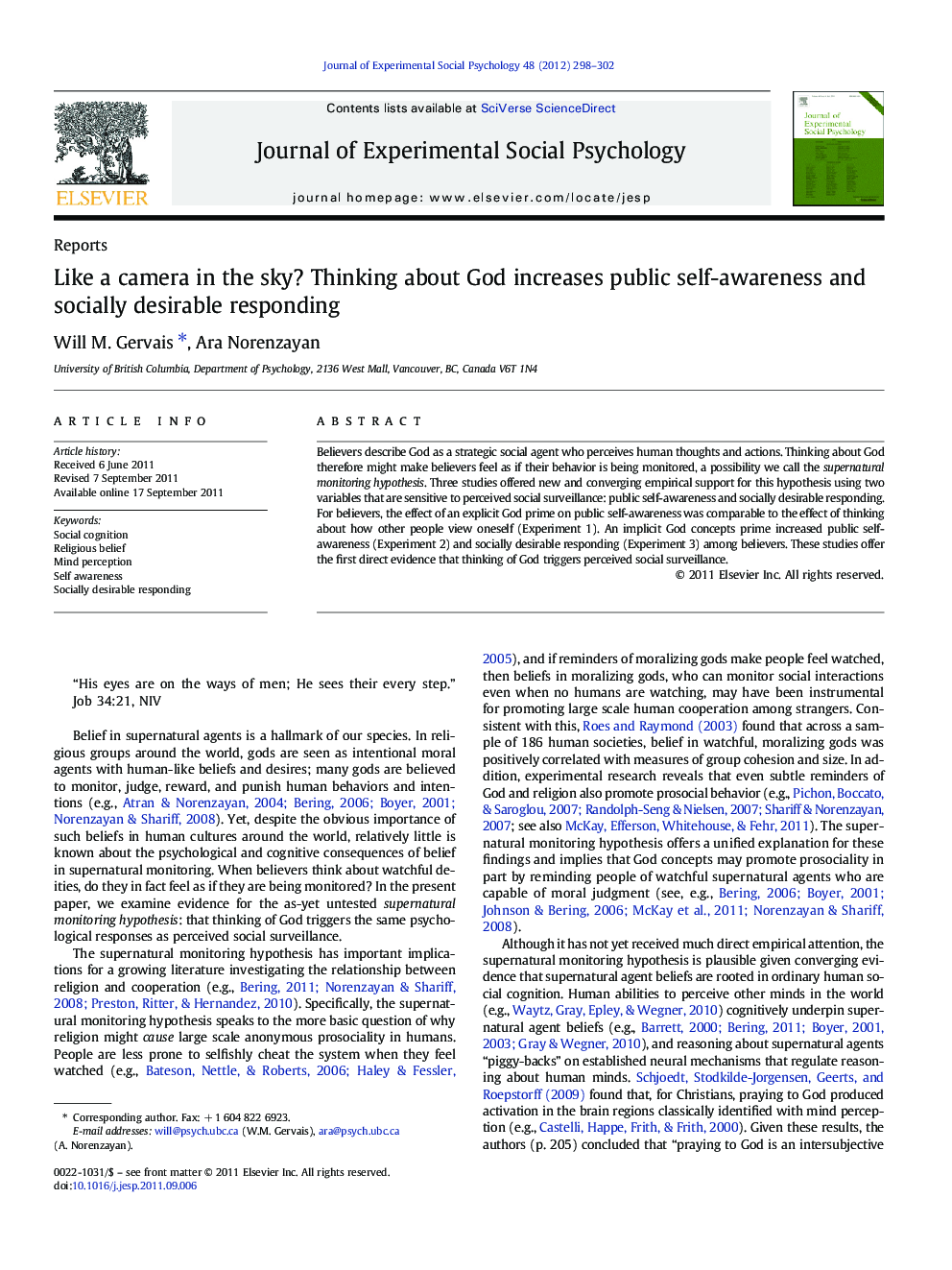| Article ID | Journal | Published Year | Pages | File Type |
|---|---|---|---|---|
| 948235 | Journal of Experimental Social Psychology | 2012 | 5 Pages |
Believers describe God as a strategic social agent who perceives human thoughts and actions. Thinking about God therefore might make believers feel as if their behavior is being monitored, a possibility we call the supernatural monitoring hypothesis. Three studies offered new and converging empirical support for this hypothesis using two variables that are sensitive to perceived social surveillance: public self-awareness and socially desirable responding. For believers, the effect of an explicit God prime on public self-awareness was comparable to the effect of thinking about how other people view oneself (Experiment 1). An implicit God concepts prime increased public self-awareness (Experiment 2) and socially desirable responding (Experiment 3) among believers. These studies offer the first direct evidence that thinking of God triggers perceived social surveillance.
► We tested the supernatural monitoring hypothesis: Do believers feel watched by God? ► Everyday social cognitive processes enable the mental representation of gods. ► We tested whether thinking of God triggers the same reactions as do human observers. ► Thinking of God caused cognitive consequences similar to being watched by people.
